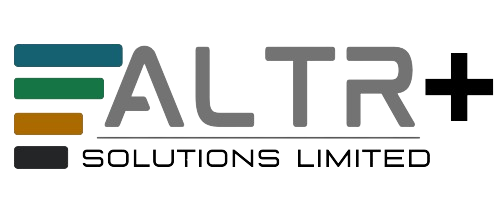BORROW MINDFULLY.
BUILD STABILITY.
Mastering Mortgages: Secrets, Strategies, and Success Unveiled!
From first-time buyers to those exploring buy-to-let options, discover everything essential for your mortgage journey—whether it’s buying your first home, remortgaging, or making a move—unveiling the key elements to find your perfect mortgage fit.
Mortgage Basics
A mortgage is a big deal, so take your time to understand everything. It’s okay to ask questions and get help from experts like financial advisors or mortgage brokers.
Mortgages can be complex, but here are some key points to keep in mind:
Interest Rates: When you’re getting a mortgage, think about the interest rate. It’s like the price you pay for borrowing money. You can choose a fixed rate, where it stays the same or a variable rate that can change.
Loan Types: Mortgages come in different types, like flavours of ice cream. There’s fixed-rate, Tracker, discount rate, SVR, interest only and more. Each has its own rules and perks, so pick the one that suits you best.
Down Payment: This is the money you put up front. It resembles a down payment for a vehicle. The more you pay upfront, the less you borrow, and that can mean lower monthly payments and less interest over time.
Loan Term: How long do you want to take to pay it off? Comparable to having to decide between a sprint and a marathon. Higher monthly payments but lower total interest are associated with shorter durations.
Closing Costs: When you get a mortgage, there are extra costs—like when you buy a concert ticket and they add all those fees. They cover things like appraisal, inspection, and insurance. Don’t forget to budget for these.
Credit Score: Your credit score is like your report card for borrowing money. You can get a better deal the better it is. It is advisable to review it before applying.
Preapproval vs. Prequalification: Prequalification is like a rough guess, while preapproval is the real deal. Preapproval means the lender has checked your finances and knows how much they can lend you.
Debt-to-Income Ratio (DTI): Lenders look at how much money you owe compared to how much you make. It’s like balancing your books. The lower your DTI, the better your chances of getting a good mortgage.
Understand the Fine Print: Just like when you sign up for a new app and have to agree to all those terms, read everything about the mortgage. Check for penalties and rules about paying early or changing the loan.
Shop Around: Take caution when taking the first offer that is made to you. It’s like buying a new phone—you want to check out different models and prices. Look at rates and fees from different lenders to find the best one for you.
First-time Buyer
Buying your first home is a thrilling milestone, and navigating the mortgage landscape can be both exciting and daunting. As first-time buyers, the journey begins with understanding the intricate world of mortgages tailored specifically for newcomers to the property market.
What Exactly is a First-Time Buyer Mortgage?
A first-time buyer mortgage is your gateway into the realm of homeownership. Designed for individuals stepping onto the property ladder for the first time, these mortgages typically necessitate minimal deposits, often ranging from 5% to 10% of the property’s value. They cater to those without prior property ownership, offering accessible entry points into the housing market.

Read More >>
How They Work?
Much like standard residential mortgages, these loans are secured against your property. Monthly repayments on most first-time buyer mortgages contribute towards paying off both interest and a portion of the principal loan. However, there are variations such as interest-only mortgages, although these are less common for first-time buyers from mainstream lenders.
Deciphering Deposit Requirements
The deposit required for a first-time buyer mortgage often stands at a minimum of 5%, translating to a 95% loan-to-value (LTV) ratio. A higher deposit, say 10%, can yield better mortgage rates, resulting in potential savings over the loan term.
Exploring the Mortgage Landscape
Various Types of First-Time Buyer Mortgages
Fixed-Rate Mortgages: Offering stability, these mortgages lock your interest rate for a specific duration, shielding you from market fluctuations.
Tracker Mortgages: These mortgages track the Bank of England’s base rate, affecting your monthly repayments accordingly.
Discount Mortgages: Linked to the lender’s standard variable rate (SVR) with an initial discounted rate, these can be advantageous during certain periods.
Offset Mortgages: Leveraging your savings to offset the mortgage balance, potentially reducing overall interest payments.
Guarantor Mortgages: For those lacking a deposit, a guarantor pledges to cover repayments if the buyer defaults.
Unlocking Your Borrowing Potential
The amount a first-time buyer can borrow hinges on various factors. Lenders scrutinize income, expenses, credit scores, and the ability to sustain mortgage repayments, especially in the face of potential interest rate hikes.
Navigating the Process
Qualifying as a First-Time Buyer
To qualify, one typically shouldn’t have owned residential or buy-to-let property previously. Guidelines may vary among lenders and government support schemes.
Getting Started
Begin by securing an agreement in principle—a preliminary assessment by a lender estimating the borrowing amount without impacting your credit score. Final mortgage offers come after comprehensive checks.
Expert Guidance Matters
Expert advice can be invaluable in selecting the most suitable mortgage. Partnering with trusted mortgage advisors can uncover exclusive deals and savings.
Government Schemes and Financial Support
Several government schemes aim to bolster first-time buyers:
- First Homes Scheme
- Help to Buy
- Forces Help to Buy
- Shared Ownership
- Right to Buy
- Lifetime ISAs
- 95% Mortgage Guarantee Scheme
Each scheme addresses specific needs, offering financial incentives, equity loans, or discounts to facilitate homeownership for first-time buyers.
Essential Financial Considerations
Beyond the mortgage amount, various additional costs come into play:
- Stamp Duty
- Arrangement Fees
- Survey Fees
- Valuation Fees
- Conveyancing Fees
- Broker Fees
- Home Insurance
Understanding these costs is pivotal in budgeting and planning for a successful home purchase.
Optimizing Your Position
Enhance your chances of securing a mortgage:
Joint Mortgages: Partnering may increase affordability.
Guarantor Mortgages: Family or friends can assist as guarantors.
Shared Ownership: Buying a partial share can be a stepping stone.
Navigating the landscape of first-time buyer mortgages demands comprehensive knowledge and strategic planning. Understanding the nuances of deposit requirements, mortgage types, government schemes, and associated costs equips buyers to make informed decisions, transforming homeownership dreams into reality.

ReMortgage
Remortgaging offers a strategic avenue to reduce mortgage payments, leverage better interest rates, or extract additional funds without liquidating your property. It’s a powerful financial tool enabling homeowners to optimize their mortgage deals according to changing circumstances.
Understanding the Basics
What is Remortgaging?
Remortgaging involves transitioning from your existing mortgage arrangement to a new one, either by switching to a different deal with your current lender or transferring to a new lender. The former, often termed a product transfer, entails minimal change beyond monthly repayment adjustments. Conversely, opting for a different lender necessitates settling the existing mortgage as the new lender assumes the debt, typically involving administrative processes and additional fees.
read more >>
Making the Decision: When to Hold Back
Remortgaging might not be prudent if financial conditions have deteriorated or if the property’s value has decreased. Factors like reduced income, a drop in credit score, or plans to relocate can impede securing favorable remortgage rates. Moreover, early exit from existing mortgage deals during the lender’s tie-in period can incur substantial early repayment charges.
Navigating Remortgage Considerations
Exploring Remortgage Deals
Determining eligible remortgage deals hinges largely on the Loan-to-Value (LTV) ratio, i.e., the proportion of the property’s value covered by the mortgage. Higher equity often translates to more advantageous deals. Utilize online calculators or engage mortgage brokers to explore a spectrum of deals, ensuring alignment with your financial goals and property value.
The Remortgaging Process
Whether transitioning within the same lender or switching, preparing financial documents is paramount. Pay slips, tax returns, bank statements, and identification proofs feature prominently in the application. A product transfer within an existing lender streamlines the process, while remortgaging with a new lender necessitates a more exhaustive administrative procedure.
Timelines and Costs
The remortgaging journey typically spans about two months, contingent upon paperwork completion. Commence research and applications three to six months before the current deal expires to secure a seamless transition. Besides interest rates, factor in various fees such as arrangement, legal, valuation, and exit charges, which contribute significantly to overall remortgage costs.
Overcoming Challenges
Credit scores wield significant influence over accessing favorable mortgage deals. Poor scores limit options, potentially leading to higher interest rates and fees. Specialist lenders cater to individuals facing credit challenges, but improving credit scores through debt repayment and registry inclusion enhances remortgage prospects.
Remortgaging stands as a dynamic strategy offering financial flexibility, but its viability hinges on meticulous assessment of personal circumstances and market dynamics. Engaging with financial advisers, understanding fees, and timing the transition play pivotal roles in optimizing remortgaging benefits.
Shared Ownership Mortgage
Shared ownership mortgages provide a feasible pathway to homeownership, especially for individuals facing financial constraints inhibiting a traditional mortgage’s attainability. By enabling the purchase of a portion, rather than the entirety, of a property, shared ownership mortgages offer reduced deposit requirements and increased affordability for those with lower incomes.
Essential Features of Shared Ownership Mortgages
Definition and Viability
A shared ownership mortgage involves acquiring a fraction of a property, typically facilitated by housing associations, local authorities, or developers. This arrangement permits individuals to part-buy, part-rent, making it an attractive prospect for those with limited access to standard mortgages due to financial limitations.

read more >>
The ‘Staircasing’ Opportunity
One distinctive feature of shared ownership involves the possibility to incrementally increase the share owned, a process known as ‘staircasing.’ This gradual acquisition of more significant ownership rights not only influences financial commitments but also impacts considerations like stamp duty, aligning with an individual’s intentions and financial capabilities.
Financial Obligations
Alongside mortgage payments, tenants are obliged to pay rent on the share of the property not owned, typically around 3% of the unowned portion. Additionally, tenants must factor in expenses like service charges for communal areas and ground rent, which persist even after acquiring 100% ownership.
Tax and Financial Considerations
Stamp Duty Implications
The stamp duty considerations for shared ownership vary based on the approach taken – a single payment covering the property’s entire value or incremental payments corresponding to the share acquired. For first-time buyers, relief may apply for properties valued up to £425,000.
Eligibility Criteria
To qualify for shared ownership in England, meeting certain criteria is essential. These include maintaining a household income below £80,000 (or £90,000 in London), being a first-time buyer or in shared ownership, and demonstrating financial capability and good credit history.
Initiating the Process
Commencing the shared ownership journey involves seeking available properties through housing associations, homebuilders, or local council listings. Prospective buyers undergo financial assessments to determine affordability and property suitability aligned with their financial status.
Mortgage Application and Requirements
Obtaining a shared ownership mortgage mirrors a standard mortgage application but considers additional factors like rental, maintenance charges, and ground rent. Calculating the mortgage amount depends on the share being purchased and the deposit’s size, typically necessitating a minimum 5% deposit.
Evaluating Pros and Cons
Advantages
- Opportunity for homeownership in scenarios where traditional paths seem unattainable.
- Expedited home acquisition compared to saving for outright purchase.
- Option to progressively increase property ownership through staircasing.
Disadvantages
- Geographic limitations based on available shared ownership properties.
- Escalating staircasing costs if property values rise.
- Higher interest rates compared to standard mortgages due to perceived risk.
Alternatives to Consider
Other Homeownership Avenues
For individuals for whom shared ownership might not be the optimal choice, exploring alternatives like Right to Buy mortgages, First Homes schemes, Lifetime ISAs, 100% mortgages, gifted deposit mortgages, or renting might offer more suitable options aligned with their financial capacities and preferences.
This comprehensive guide aims to illuminate the intricacies of shared ownership mortgages in England, providing a roadmap for prospective buyers to navigate this alternative path to homeownership effectively.
- All Posts
- Back
- Personal Finance
- Online Business
- investment
- Mortgage
- Loan
- Credit Card

In the pursuit of financial security and peace of mind, adopting smart money habits is an essential step towards achieving…

Black Friday 2023 is just around the corner – that annual shopping extravaganza promising irresistible deals and unbeatable discounts. It’s…
Image Sources: freepik.com & pexels.com

